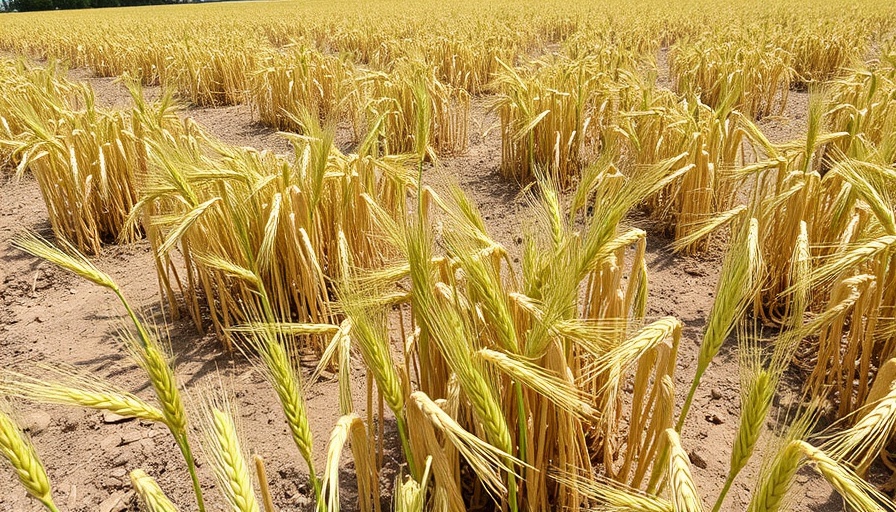
The Impact of Drought on Wheat Prices
In an unexpected twist for the global market, drought conditions are driving wheat prices upward, far more than the recent trade wars ever could. While many commodities struggle with international trade tensions, wheat has shown remarkable resilience, particularly in Europe. Recent patterns reveal an emerging bullish outlook for EU wheat prices despite a backdrop of global economic instability, including a decline in stock markets.
Understanding the Resilience of Wheat Prices
The ongoing U.S. trade war, bolstered by tariffs under the previous administration, seemed poised to disrupt the wheat market. However, it turns out the risk from climate factors such as drought has trumped the effects of politics. As supply becomes tighter, we can expect further escalation in wheat pricing. Those in the poultry industry should take heed; these market dynamics could affect feed prices, impacting operational costs.
Drought Versus Trade Wars: A Comparative Analysis
While trade wars typically lead to an increase in market uncertainty, the current emphasis on drought conditions highlights the vulnerability of agricultural production systems to nature's wrath. For poultry managers and suppliers, understanding these market fluctuations is essential for strategic planning. The drought is not just a localized issue but a global one with implications that extend far beyond farming.
Future Insights for the Poultry Industry
As we look towards the future, the poultry industry must prepare for potentially altered feed economics stemming from changing wheat prices. This situation serves as a reminder of the intricate connections between climate, trade, and food production. By staying informed and proactive, industry professionals can navigate these turbulent waters with greater efficiency, ensuring compliance and cost-effectiveness in their operations.
The Direct Impacts on Operations
In light of the current agricultural landscape, poultry executives should reassess their supply chains. Drought-induced price rises may lead to shifts in sourcing strategies. Enhancing partnerships and suppliers’ networks could provide relief, allowing for more adaptability in challenges posed not only by climate conditions but economic factors too.
Call to Action
As the situation unfolds, we encourage poultry industry professionals to stay updated on market trends and emerging data related to wheat prices. Being informed is not just beneficial; it's essential for sustainable operations in an unpredictable environment.
 Add Row
Add Row  Add Element
Add Element 



 Add Row
Add Row  Add
Add 
Write A Comment